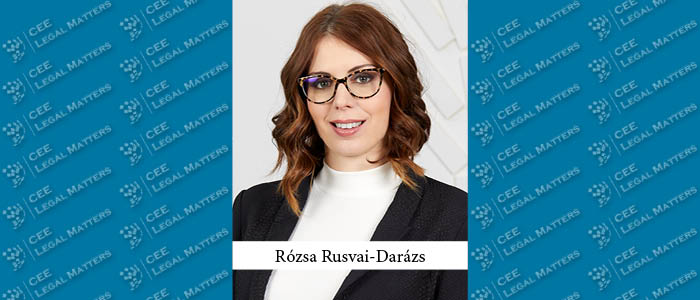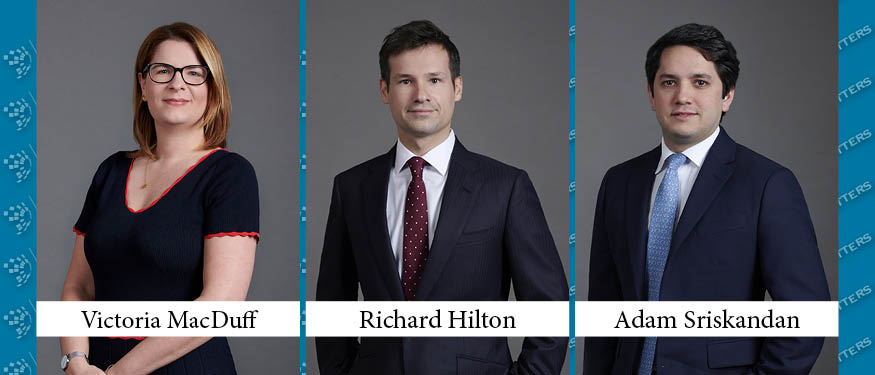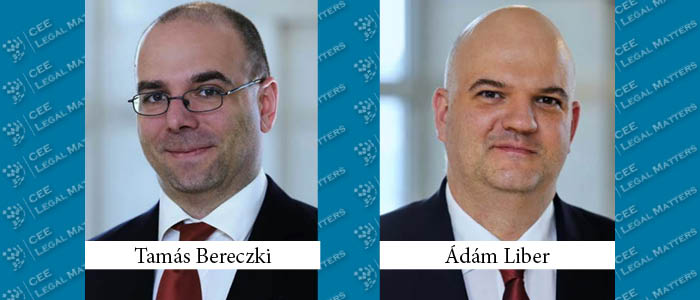Wolf Theiss has advised Digi Tavkozlesi es Szolgaltato Kft. on acquiring Direct One from Canal+ Luxembourg S.ar.l. CMS advised the seller.
Building Up eHungary: A Buzz Interview with Orsolya Kovacs of Nagy es Trocsanyi
After heightened political tensions preceding June’s elections, Hungary is now implementing a new electronic land registry requiring attorneys to pass an exam, amid ongoing digitalization efforts, according to Nagy es Trocsanyi Partner Orsolya Kovacs.
Wolf Theiss Advises 4iG on Acquisition of PR-Telecom
Wolf Theiss has advised the 4iG Group and its telecommunications portfolio manager Antenna Hungaria Plc. on their acquisition of a 100% stake in PR-Telecom Tavkozlesi Zrt.
Kapolyi Advises on Foodnet's Listing on Budapest Stock Exchange Through Amixa Public Shell Company
Kapolyi Law Firm has advised Amixa and Foodnet Ltd. shareholders on the former's acquisition of the latter and Amixa's listing of new shares on the Budapest Stock Exchange.
Schoenherr Advises BlackPeak Capital and Catalyst Romania Fund II on Leanpay Funding
Schoenherr has advised BlackPeak Capital and Catalyst Romania Fund II on a EUR 10 million Series B funding for Leanpay.
Peter Paroczi Promoted to Head of Compliance and Corporate Governance at QAFCO
Hungarian Lawyer Peter Paroczi has been promoted to the Head of Compliance and Corporate Governance at the Qatar Fertilizer Company.
New Legislation to Fight Against Money Laundering and Terrorist Financing
To support the prevention of money laundering and terrorist financing, on 26 June 2024, the Hungarian National Bank issued two new regulations, incorporating changes in domestic legislation, guidelines of the European Banking Authority and lessons learned from supervisory experience.
Closing: Banca Transilvania's Purchase of OTP Bank Romania Now Closed
On August 1, 2024, Filip & Company and CMS announced that Banca Transilvania's purchase of OTP Bank Romania (as reported by CEE Legal Matters on February 21, 2024) has now closed.
The Social Tax on Interest Income Remains with Us
Since 1 July 2023, interest income has been subject to a 13% social contribution tax (‘szocho’) in addition to the 15% personal income tax (‘szja’). Originally this was only for the duration of the emergency caused by the armed conflict in Ukraine. However, a new act published in the Hungarian Official Gazette on 18 June 2024, changed the situation.
The EU AI Act Enters into Force Today, August 1, 2024
The EU’s Al Act (Regulation 2024/1689) enters into force today, August 1, 2024. The groundbreaking Act is designed to ensure that AI systems are safe, transparent, and governed by rules that protect fundamental rights. The Act categorizes AI applications into risk-based tiers, with each tier subject to different levels of regulatory scrutiny and compliance requirements.
New Activity Codes: Administrative Obligations for Hungarian Companies
In July 2024, the Hungarian Central Statistical Office began sending formal notifications via email regarding changes to the statistical codes of various activities. Although the required procedure takes only a few minutes, non-compliant companies may face penalties.
Kapolyi Advises VGD Hungary on Sale to WTS Klient Business Advisory
Kapolyi has advised VGD Hungary on its sale to WTS Klient.
Taylor Wessing Advises Recorde Asset Management and Forestay Group on Moricz Student Living To-Be Building
Taylor Wessing has advised Recorde Asset Management and Forestay Group on the acquisition of a building in Budapest’s Gellert Hill area set to become the Moricz Student Living student residence and office building. Taylor Wessing, working with Kalman & Partners, also advised Recorde and Forstay on the acquisition financing obtained from Hypo Bank Noe.
Significant Changes in the Administrative Service Fees of Land Registry Proceedings
From 29 July 2024, the administrative service fees relating to procedures for land registry, plot formation, land surveying and mapping, and the provision of data from the land register and the state databases will be increased significantly.
Taylor Wessing Advises VakifBank International on Core Banking System Implementation
Taylor Wessing has advised VakifBank International on the implementation of a core banking system.
ECJ Decides on Hungarian VAT Refund Claim
In its latest decision of May 16, 2024 the European Court of Justice (ECJ) reflected on the Hungarian foreign VAT refund regime. ECJ established once again that non-compliance with formal requirements should not prevent reimbursement of VAT provided that substantive requirements can and have been satisfied.
Deal Expanded: Interview with Slaughter and May on 2023 DOTY for Hungary
Slaughter and May’s Victoria MacDuff, Richard Hilton, and Adam Sriskandan Talk About the Deal of the Year in Hungary.
The State of Web Scraping in the EU
High-quality, diverse, and extensive datasets are fundamental for improving machine learning model performance, and web scraping helps gather the necessary data to develop more robust and generalizable models. Web scraping pose different legal challenges, such as data protection, copyright and contractual law related issues. Intellectual property concerns arise as website content, like text, images, and data, is often copyrighted, and scraping without the copyright owner’s permission may lead to infringement claims. Further to this, many websites prohibit scraping in their terms of service, and violating these terms can also result in legal action against the operators of web scrapers.




















